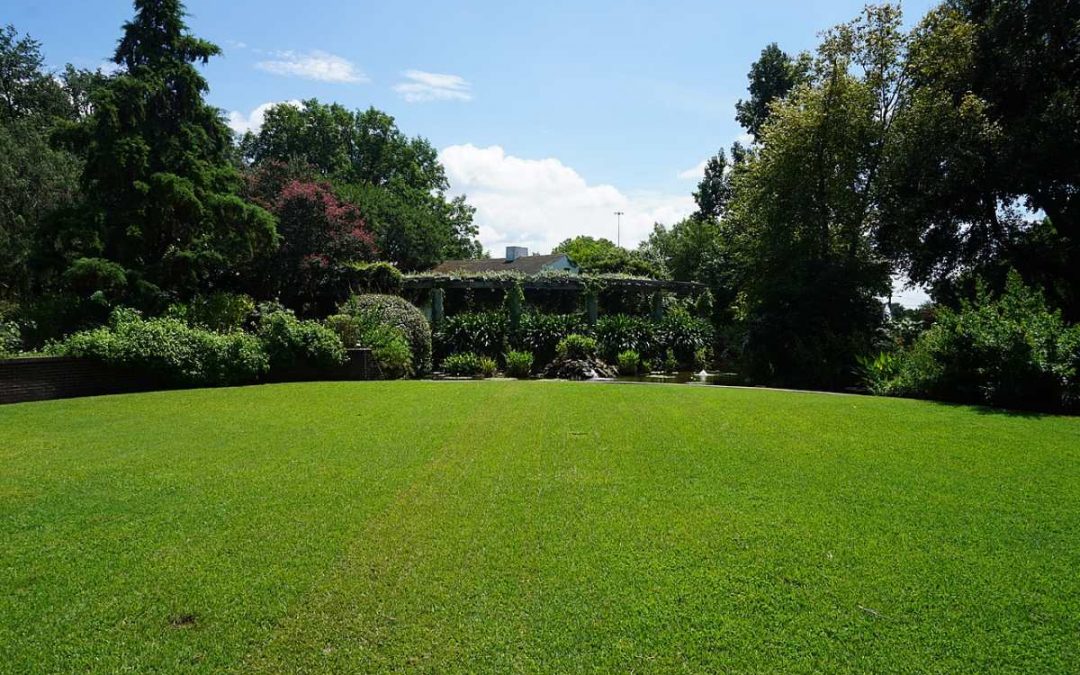We Texans like to say, “If you don’t like the weather, stick around a minute” because it changes so rapidly. These wild fluctuations – cold to hot, rainy to scorching, windy to still – and the varied climates of this massive state, can wreak havoc on grass and plants. So before you invest in expensive landscaping, it’s critical to know which grasses grow best in Texas.
In this article:
- Regional Differences in Texas
- Zoysiagrass
- St. Augustinegrass
- Bermudagrass
- Centipedegrass
- Buffalograss
- FAQ About Grass in Texas
Regional Differences in Texas
Texas is so big that its climate varies from place to place. For example, West Texas and North Texas are drier and cooler than South Texas and the coastal areas. As you might expect, then, certain grass types grow better in some regions than others. For instance, buffalograss grows best in areas that get 25 inches of rainfall or less (annually), while centipedegrass loves East Texas’ intense humidity.
That doesn’t mean you can’t grow buffalograss in coastal Texas and centipedegrass in West Texas, but you will probably have to work harder at it. So keep those differences in mind as we make our way through the strengths and weaknesses of each type of grass.
Zoysiagrass
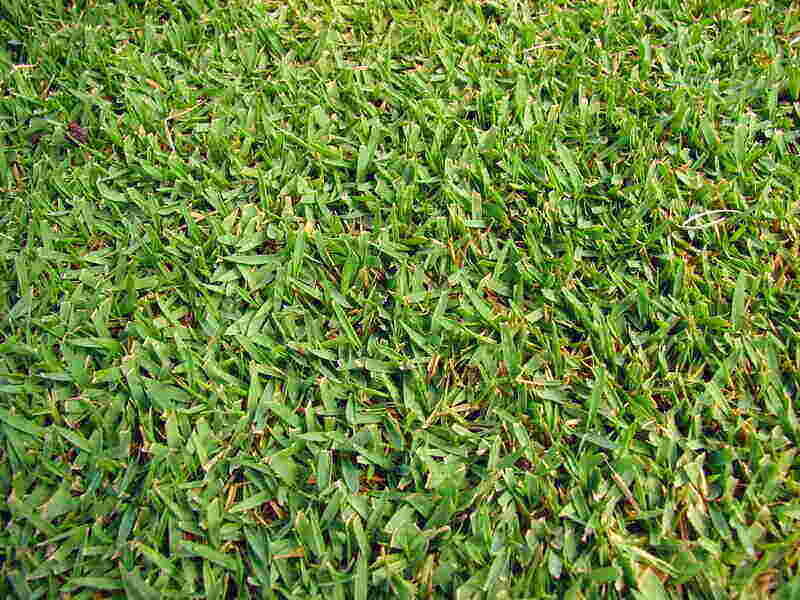
Photo Credit: Forest & Kim Starr / Wikimedia Commons / CC BY 3.0
If you plan on using your lawn for recreation and entertaining, give some thought to Zoysiagrass because it tolerates foot traffic well. Be aware, though, that if it gets damaged, it can take a while to recover because it grows slowly.
Zoysiagrass tolerates drought extremely well, and it bounces back rapidly from drought with some irrigation or rainfall.
Classification: Warm-season grass
Spreads by: Stolons and rhizomes
Shade tolerance: Moderate
Drought tolerance: Moderate to high
Foot traffic tolerance: High
Maintenance needs: Mow about once a week
Mowing Height: 1 to 2 inches
Potential for disease: Low to moderate
St. Augustinegrass
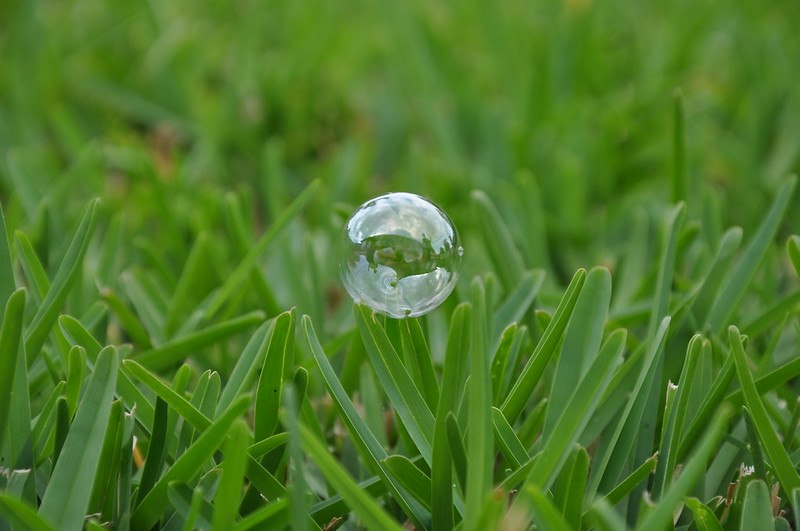
Photo Credit: Jay Morgan / Flickr / CC BY-ND 2.0
Known as “carpet grass” for the carpet-like feeling beneath your feet, St. Augustinegrass is most commonly seen in Southeast Texas (although it’s grown in most of the state). It’s the most shade-tolerant of the warm-season grasses, but while it handles drought well, it isn’t as drought-tolerant as Bermudagrass or Zoysiagrass.
St. Augustinegrass doesn’t like heavy foot traffic so don’t let the kids or pets run wild in the yard.
Classification: Warm-season grass
Spreads by: Stolons
Shade tolerance: High
Drought tolerance: Moderate
Foot traffic tolerance: Low
Maintenance needs: Moderate
Mowing Height: 2.5 to 3.5 inches
Potential for disease: High
Bermudagrass
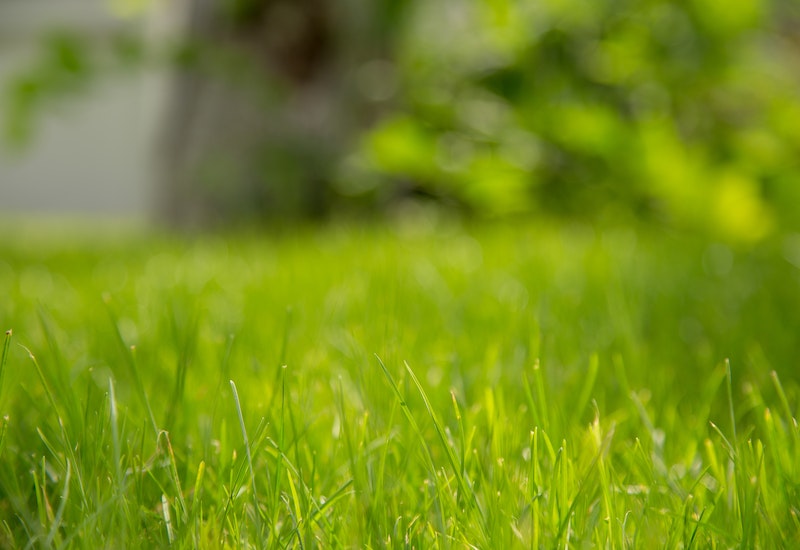
Photo Credit: Pexels
Bermudagrass’ strongest traits are its high traffic tolerance and quick recovery. This makes it popular for golf courses, lawns, and athletic fields. It’s also quite drought-tolerant and loves full sunlight.
There are many seeded varieties of Bermudagrass, some of which have finer textures and create a denser turf than standard Bermudagrass. Bermudagrass also comes in hybrid varieties (a mix of common and African varieties), which are more aggressive than regular Bermudagrass varieties.
Classification: Warm-season grass
Spreads by: Both stolons and rhizomes
Shade tolerance: Low
Drought tolerance: High
Foot traffic tolerance: High
Maintenance needs: Moderate
Mowing Height: 1.5 to 2.5 inches
Potential for disease: Low
Centipedegrass
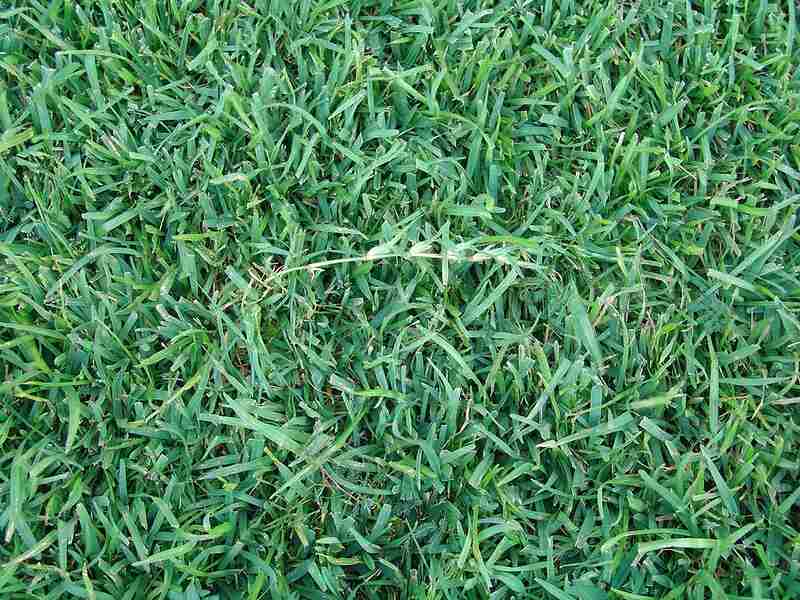
Photo Credit: James Becwar JamesBecwar / Wikimedia Commons / CC0
Centipedegrass is best adapted to East Texas’ acidic soils. It’s best known for its low-maintenance requirements: It doesn’t need a lot of irrigation, fertilization, or mowing. It grows well in moderate shade but thrives in full sunlight, but it doesn’t like heavy foot traffic.
Centipedegrass is used primarily for parks, golf courses, lawns, and other turf areas, but not athletic fields.
Classification: Warm-season grass
Spreads by: Stolon
Shade tolerance: Low
Drought tolerance: High
Foot traffic tolerance: Low
Maintenance needs: Low
Mowing Height: 1.5 to 2 inches
Potential for disease: Moderate
Buffalograss
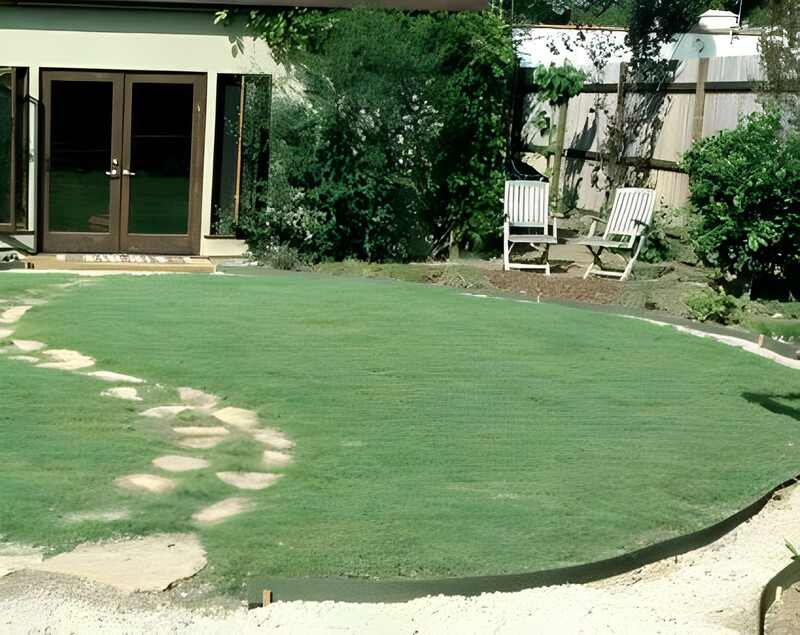
Photo Credit: Susan Harris / Flickr / CC BY 2.0
Located in Central and West Texas, buffalograss likes heavy clay soils in areas with little rainfall. (In other areas, it has to contend with weeds and other invasive grasses). It thrives in full sun but doesn’t like heavy shade or foot traffic.
Buffalograss works well in many areas, such as school grounds, golf courses, parks, and roadsides.
Classification: Warm-season grass
Spreads by: Rhizome
Shade tolerance: Low
Drought tolerance: High
Foot traffic tolerance: Moderate
Maintenance needs: Very Low
Mowing Height: 2 – 3 inches
Potential for disease: Low
FAQ
Buffalograss, centipedegrass, and Zoysiagrass are your best choices for a lawn that doesn’t require much maintenance.
St. Augustinegrass is the way to go if your lawn gets a lot of shade.
Bermudagrass and Zoysiagrass are the preferred choices if you plan on having people in the yard frequently.
The Final Word
There isn’t a single type of grass that fits every Texas lawn. Choosing the right grass depends on where you live.
Once you get your grass picked out, complement it with low-maintenance landscaping that makes your yard come alive but without a bunch of effort and money.
Where do you start? Contact one of Wikilawn’s lawn care professionals, and they’ll give you all the help you need.
Main Photo Credit: Texas Discovery Gardens / Michael Barera / Wikimedia Commons / CC BY-SA 4.0

